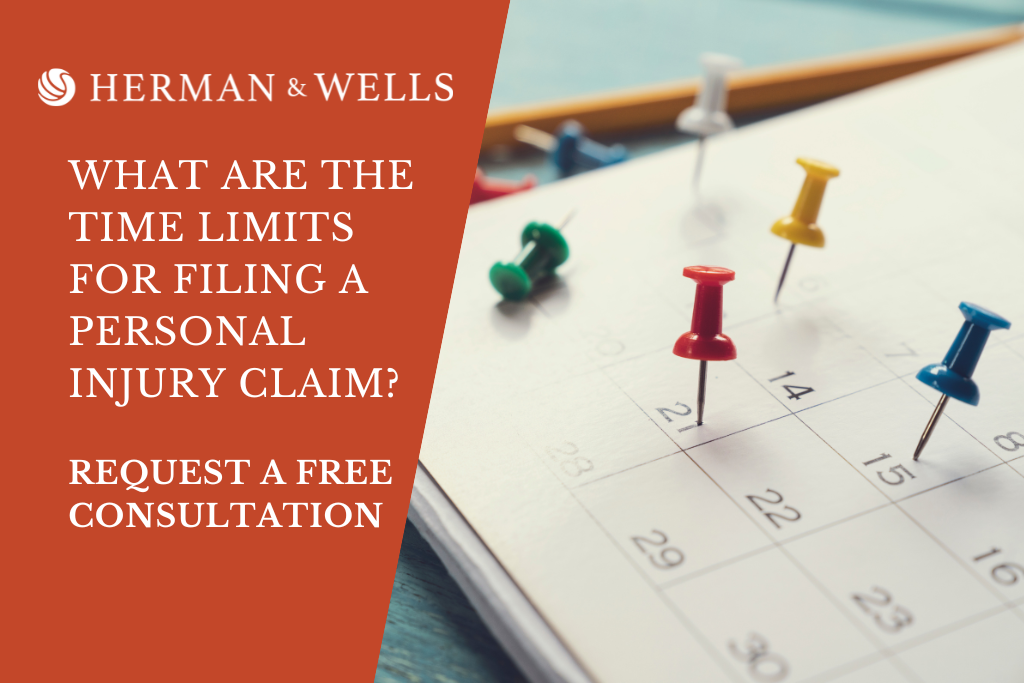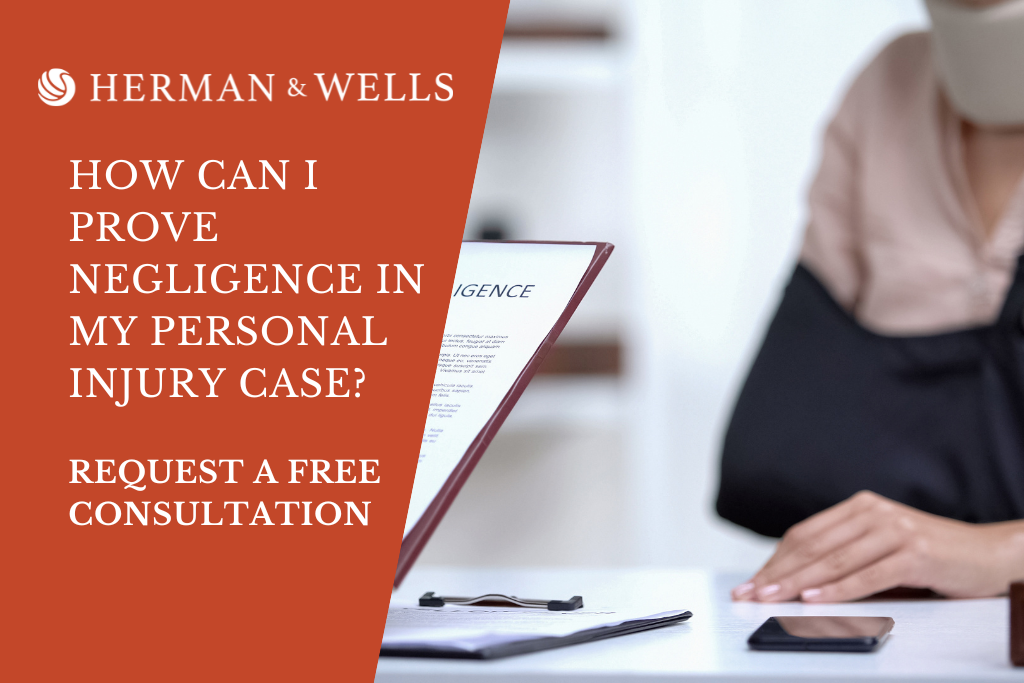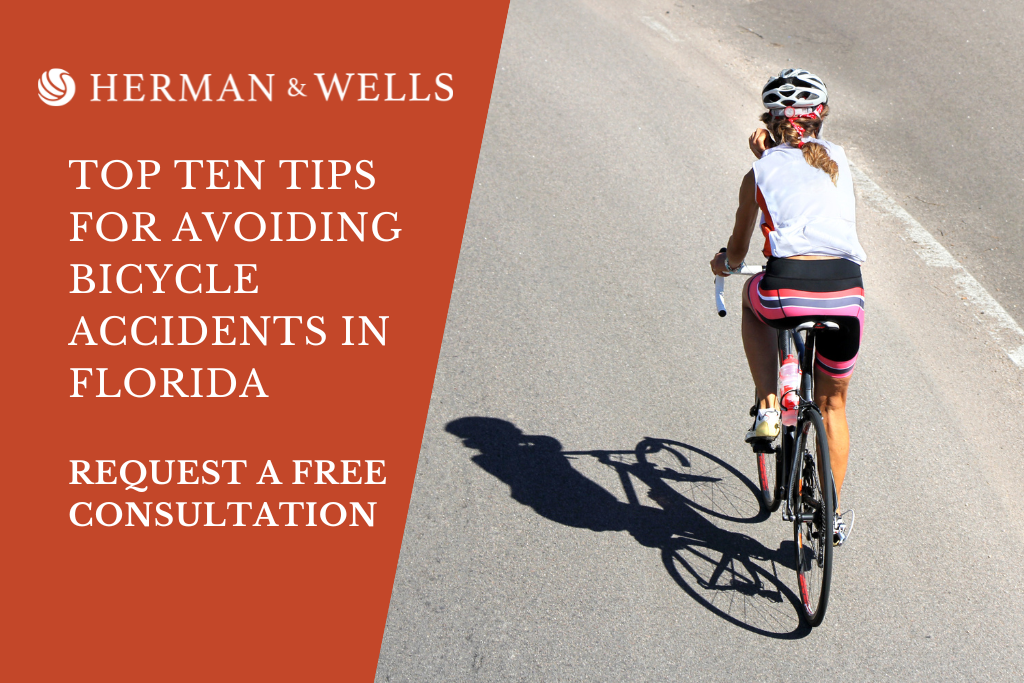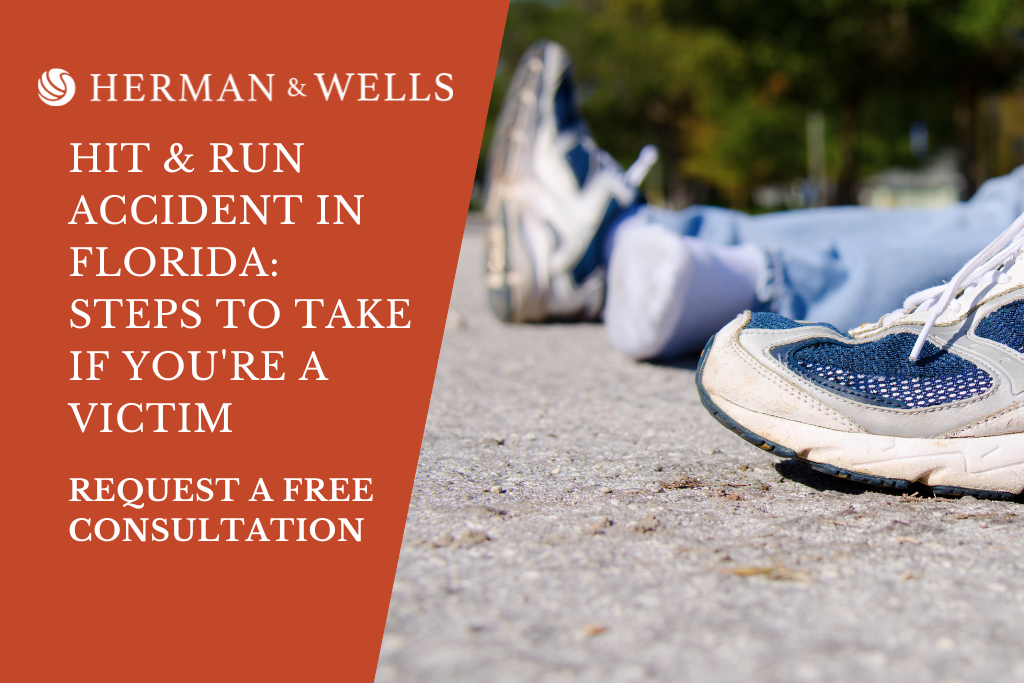If you live in the Sunshine State, there’s a good chance you spend time at a pool—either your own, a friend’s, or at a public facility. We’re lucky enough to have warm weather year-round, and swimming is a great way to cool off and stay active. A visit to a pool should be relaxing, fun, and, most of all, safe. Sadly, pool accidents happen more often than you think.
According to the state’s Department of Health, Florida has the highest rate of drownings in the U.S. for children aged one to four, and the second-highest rate for children aged one to 14. While these statistics are unfortunate, they don’t tell the whole story of pool accidents in Florida. Adults and teenagers drown, too. And while devastating, drownings are not the only pool-related accidents that can have lifelong effects.
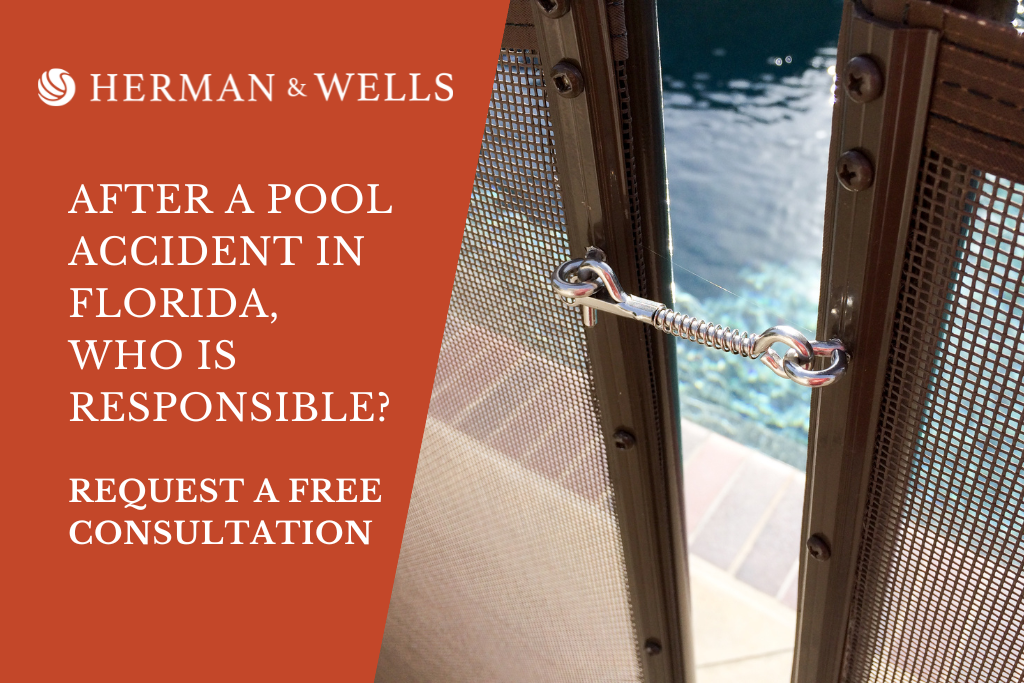
The Cliff Notes: Key Takeaways From This Post
- 1Florida has the highest rate of drownings in the US for children aged 1-4 and second-highest for those aged 1-14.
- 2Types of pool accidents in Florida include near drownings, slip and falls, hair/body parts pulled into drains & suction outlets, waterborne diseases, head injuries due to pushing/falling.
- 3Pool accident risks are higher for males, people 75+ and children under 4.
- 4At fault parties can include homeowners (failure to meet safety requirements as per FL Statute Chapter 515), commercial pool owners/operators/caretakers (not meeting health standards) and pool part manufacturers (for producing defective products).
- 5Tips to prevent pool accidents: learn how to swim; get certified in CPR/First Aid; no horseplay; use well-lit/supervised commercial pools; designate a lookout for home pools; have multiple safety features installed; clean off pool covers regularly; stay sober when around pools.
- 6Knowing the law, speaking with an attorney re: settlement offer, & seeking compensation if appropriate after a pool accident is important.
Types of pool accidents in Florida
An accident can happen in a matter of seconds and change your life forever. In addition to drowning, some of the most common pool accidents are:
- Near drownings
- Slip and falls in the area around the pool due to improper maintenance or needed repairs
- Hair and body parts being pulled into drains and suction outlets due to broken, missing, or malfunctioning covers
- Acquiring a waterborne disease like E. coli or Cryptosporidium due to ineffective or inadequate chlorine maintenance
- Hitting one’s head on the side or bottom of the pool after being accidentally or deliberately pushed in the pool
These accidents can result in spinal cord injuries, brain damage due to a lack of oxygen, broken bones, intestinal damage, and even loss of life.
Who is at risk for a pool accident?
Anyone, of any age, who is in or around a pool is at risk for an accident. However, some populations are more susceptible. In 2012, the Florida Department of Health reported that males accounted for 72% of drownings and near-drowning hospitalizations. And while children four or under account for many accidents, there is also an increased risk for adults aged 75 and older.
When pool accidents happen, who is at fault?
Pool accidents are often the result of someone’s — either an individual’s or a company’s — negligence or careless actions. This is called being “at fault.” To pursue a pool accident settlement, you must be able to prove another party was at fault. Who is found to be at fault depends on (1) where the accident took place; and (2) what factors attributed to the accident. In a pool accident in Florida, at-fault parties could be:
Homeowners
Even though it is private property, Florida homeowners are required to keep their pools safe and in good working order. These laws are found in Chapter 515 of the Florida Statutes, The Residential Swimming Pool Safety Act. According to these laws, at least one of the following safety features must be present at a private pool:
- A barrier, such as a fence, that separates the house from the pool and meets the specific guidelines set forth in Chapter 515.29
- An approved safety pool cover
- All doors and windows that provide direct access to the pool must have exit alarms that have a “minimum sound pressure rating of 85 dB A at 10 feet”
- Any doors that provide direct access to the pool must be self-closing, self-latching, and have a release mechanism (i.e., a handle) “no lower than 54 inches above the floor”
- A swimming pool alarm that meets ASTM Standard F2208, Standard Safety Specification for Residential Pool Alarms
State law takes these safety measures seriously. Even in the absence of any pool accidents or injuries, failing to have one of these measures in place is a misdemeanor.
If an accident occurred and the homeowner failed to have one of these safety features in place, they could be at fault for a pool accident.
Commercial Pool Owners, Operators, And Caretakers
Commercial pools in places like spas, resorts, and hotels also have safety requirements.
- The pool caretaker must maintain a daily log, as required by the FL Department of Health
- Pool operators need to ensure the pool is never overcrowded
- Public pools and spas must have anti-entrapment devices on drain covers
- Pools that are open during nighttime hours must be adequately lit
These are just some of the requirements in place for public pools in Florida. The bottom line is, just as with private pools, public pools and the area surrounding them must be safe.
Pool, Pool Parts, And Safety Device Manufacturers
Manufacturers have a responsibility to produce safe and effective products. Incidents, where a manufacturer may be liable for a pool accident in Florida, include:
- Malfunctioning door and window alarms that do not go off when activated
- Drain covers that do not stay on or break under normal circumstances
- A defective pool cover
Every pool accident, and any resulting injuries, are unique. After careful review, an experienced personal injury attorney in Florida can tell you if you have a legal case.
How to prevent pool accidents
There are many ways we can all be safer around pools:
Learn how to swim. Have children take swimming lessons at an early age. And if you didn’t learn as a child, it’s not too late. Adult classes are offered at YMCAs and other organizations. No one has to be an Olympic swimmer, but being comfortable in the water and knowing basic strokes, along with how to float, are essential.
Become certified in CPR and First Aid. That way, you can be prepared for any accidents that may occur.
Be smart when around pools. That means no “horseplay.” Never throw or push anyone into a pool. Don’t run on pool decks.
Make sure commercial pools are safe. When swimming in commercial pools, only use well-lit pools that have a lifeguard on duty.
Designate one person to be the “lookout” in private pools. That person’s sole job is to keep an eye on all swimmers, particularly young children. Unlike what you see in movies, drowning is often silent.
Keep a phone next to the pool in case of emergencies.
Stay sober. Even a couple of drinks can slow your reflexes and impair your judgment.
Do not swim in a malfunctioning pool. If any pool part appears to be malfunctioning, have everyone evacuate the pool. Do not use the pool until it is fixed.
Have multiple safety features. While the law only requires homeowners to have one safety feature in place, you can certainly have more. If there are children or frail adults in the home, consider using both door and window alarms in conjunction with a barrier fence. Even if you hear an alarm, you may not get to the pool in time. Drowning can happen in as little as 20 to 60 seconds.
Take care of pool covers. Pool covers can hold water after a rainfall. Be sure to clean off the cover as needed, as young children can drown in just a few inches of water.
Even when great care is taken, pool accidents can and do happen. If you or a family member has been injured in a pool accident in Florida, you may be able to pursue a settlement.
Why should I contact an attorney after a pool accident?
Being involved in a pool accident is expensive. The Department of Health reported that in 2012, hospitalizations for near-drownings in Florida cost over $16 million. That figure does not include other types of pool injuries, including those resulting from slips and falls. Anyone involved in a pool accident where another party was at fault deserves to be compensated.
In many cases, the insurance company will offer you money right away. They will be in a hurry to settle the case and do not have your best interest at heart. Never sign any forms or agree to anything without first speaking with an attorney. What you are being offered may only be a fraction of what you are legally entitled to. A fair settlement is one that adequately compensates you not only for medical expenses, but also lost wages and pain and suffering.
Don’t assume that you cannot receive money for seemingly minor injuries. “Just” a broken arm can keep you out of work or school, resulting in surgeries and significantly impacting your life. Even if you think the accident was your fault, in the eyes of the law that may not be the case. Florida laws regarding pools are lengthy and complex. An attorney familiar with pool accidents in Florida will see the big picture.
Were you injured in a pool accident in Florida?
As personal injury attorneys living and working in Florida, we know the ins and outs of pool accidents. And when we take on your case, you pay nothing upfront. Our firm only gets paid if and when we are successful in getting you compensation for your injuries.
At Herman & Wells, we offer prospective clients a free case evaluation. We’ll let you know if you have a case, no strings attached. While a settlement can’t undo an accident, it can make life more comfortable. You shouldn’t have to worry about medical expenses or lost wages. Please contact us today at (727) 821-3195.

